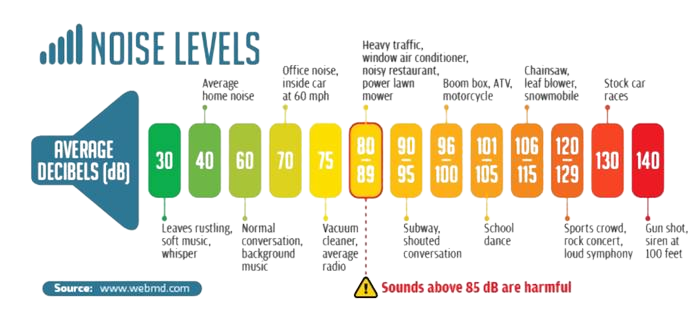Hearing loss is a common problem among individuals who work in occupations that involve exposure to loud noise. According to the Centers for Disease Control and Prevention (CDC), approximately 22 million workers in the United States are exposed to hazardous noise levels at work, and an estimated $242 million is spent annually on workers’ compensation claims for hearing loss disability. Certain careers are more likely to result in hearing loss, such as construction workers, firefighters, musicians, and factory workers.
Construction workers are exposed to loud noise from power tools, heavy machinery, and construction equipment. The National Institute for Occupational Safety and Health (NIOSH) estimates that 75% of construction workers experience hearing loss due to noise exposure. Similarly, firefighters are exposed to sirens, horns, and other high-pitched noises that can cause hearing damage. Musicians, especially those who play loud instruments like drums, guitars, or brass, are at risk for hearing loss as well. Finally, factory workers are exposed to noise from machinery, assembly lines, and power tools.
The decibel (dB) level of a sound determines its potential for causing hearing damage. The louder the sound, the shorter the amount of time it takes for hearing damage to occur. Sounds at or above 85 dB can cause hearing loss over time. Here are some examples of sounds and their decibel levels:

It’s important to note that even short-term exposure to very loud sounds, like those produced by fireworks or firearms, can cause permanent hearing loss, which is oftentimes unavoidable.
Preventing work-related hearing loss starts with identifying and minimizing exposure to hazardous noise levels. Here are some tips that can help:
Wear hearing protection:
Earplugs or earmuffs can help reduce the amount of noise that reaches your ears. Make sure the hearing protection you choose is appropriate for the noise level you are exposed to and that it fits properly.
Take breaks:
Give your ears a break by stepping away from loud noise periodically. Take breaks in a quieter area to allow your ears to rest and recover.
Reduce the noise level:
Whenever possible, reduce the noise level in your workplace. Consider using quieter equipment or machinery, or adding barriers or insulation to reduce the amount of noise that escapes.
Follow safety protocols:
Always follow safety protocols and use protective equipment provided by your employer.
Get regular hearing tests:
Regular hearing tests can help detect hearing loss early, making it easier to manage or prevent further damage.
Be aware of ototoxic chemicals:
Certain chemicals, like solvents and heavy metals, can cause hearing loss in addition to other health problems. Be aware of any chemicals you are exposed to at work and take appropriate precautions.
Limit personal exposure to loud noise outside of work:
Avoid loud music, firearms, and other loud noises outside of work to help protect your hearing.
Take care of your overall health:
A healthy diet, regular exercise, and adequate rest can help protect your hearing and overall health.
Speak up:
If you feel that the noise level at your workplace is hazardous, speak up and raise your concerns with your employer.
In addition to these precautions, it’s important to be aware of the symptoms of hearing loss. These may include difficulty hearing conversations, ringing in the ears (tinnitus), or an overall decrease in hearing sensitivity. If you experience any of these symptoms, it’s important to speak with a healthcare professional as soon as possible.
– RHIposthttps://rescuehearing.com/?p=8508

